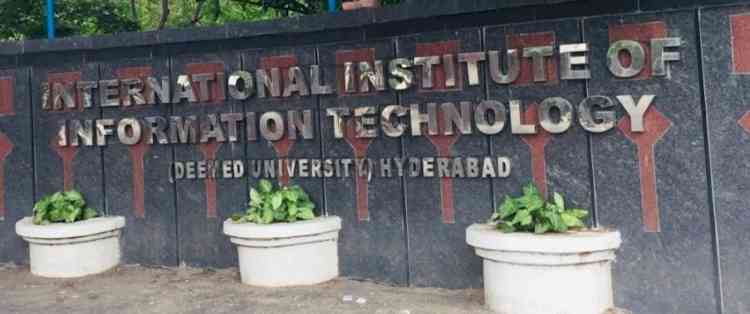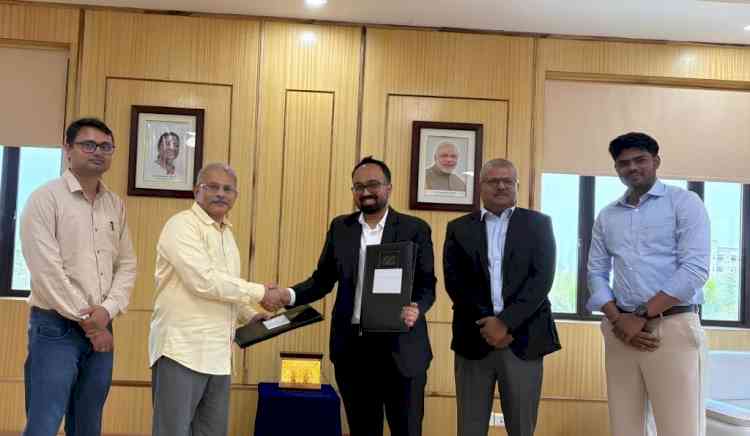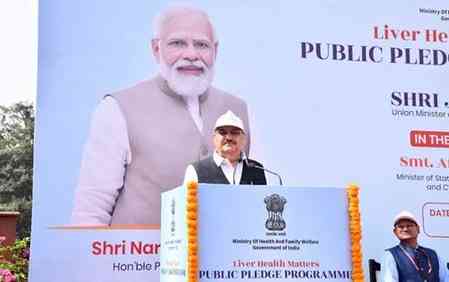IIT Hyderabad takes early lead in 6G extreme Massive MIMO technology
In a breakthrough for next generation communication, the Indian Institute of Technology Hyderabad (IITH) on Monday announced a demonstration of the Extreme Massive MIMO (Multiple-Input Multiple-Output), a key technology that is being considered for 5G-advanced and 6G deployment. Using multiple antennas at the base station, massive MIMO increases the coverage and capacity of cellular networks. This technology has become mainstream and is now an integral part of 5G.

Hyderabad, May 2 (IANS) In a breakthrough for next generation communication, the Indian Institute of Technology Hyderabad (IITH) on Monday announced a demonstration of the Extreme Massive MIMO (Multiple-Input Multiple-Output), a key technology that is being considered for 5G-advanced and 6G deployment. Using multiple antennas at the base station, massive MIMO increases the coverage and capacity of cellular networks. This technology has become mainstream and is now an integral part of 5G.
Extreme massive MIMO refers to next-generation technology that uses very large antenna arrays.
The IITH developed an experimental research prototype with the aim to discover achievable performance limits. The first set of pilots conducted using 192 antennas and 48 radio frequency chains showed that up to 24-36 users could be served in the same spectrum. This is a 3-fold improvement over the state-of-the-art 5G massive MIMO technology, designed to support 12 simultaneous users.
"For cellular operators and users, this technology offers immense benefits; cell phone users will experience high-quality voice and video delivery in crowded areas like airports, malls, railway stations, etc.; cellular operators will be able to offer broadband wireless internet in rural households, dynamic steering of the cell site beams to reduce coverage holes in urban as well as rural areas", said Prof Kiran Kuchi, Dean (R&D).
Prof Sai Dhiraj, the Lead Researcher for the project, said, "The research team at IITH continues to extend the boundaries of this technology. The ongoing investigations include new deployment topologies for indoor applications and outdoor cell sites. We are excited about this discovery and the possibilities offered by this new technology".
Congratulating the IITH team for this noteworthy work, Prof B S Murty, Director, IITH, said, "Spectrum is a scarce natural resource. In countries like India, with a large population and limited wireline infrastructure, the demand for spectrum will continue to be very high. I am delighted that India takes an early lead in 6G research by showcasing the possibility of deploying next-generation networks using the extreme Massive MIMO technology developed by IITH."
Expressing delight over this milestone, K Rajaraman, Secretary DOT, said, "IIT Hyderabad has been leading from the front in IP development. Their work on NB-IoT and other areas as part of the 5G testbed has been remarkable. We in the Department of Telecommunications are delighted to hear of the development of the Extreme Massive MIMO heralding even greater efficiency in the use of spectrum. I am sure that the IITH research team will play a significant role in the Government of India's 5G advanced and 6G efforts".


 IANS
IANS 










